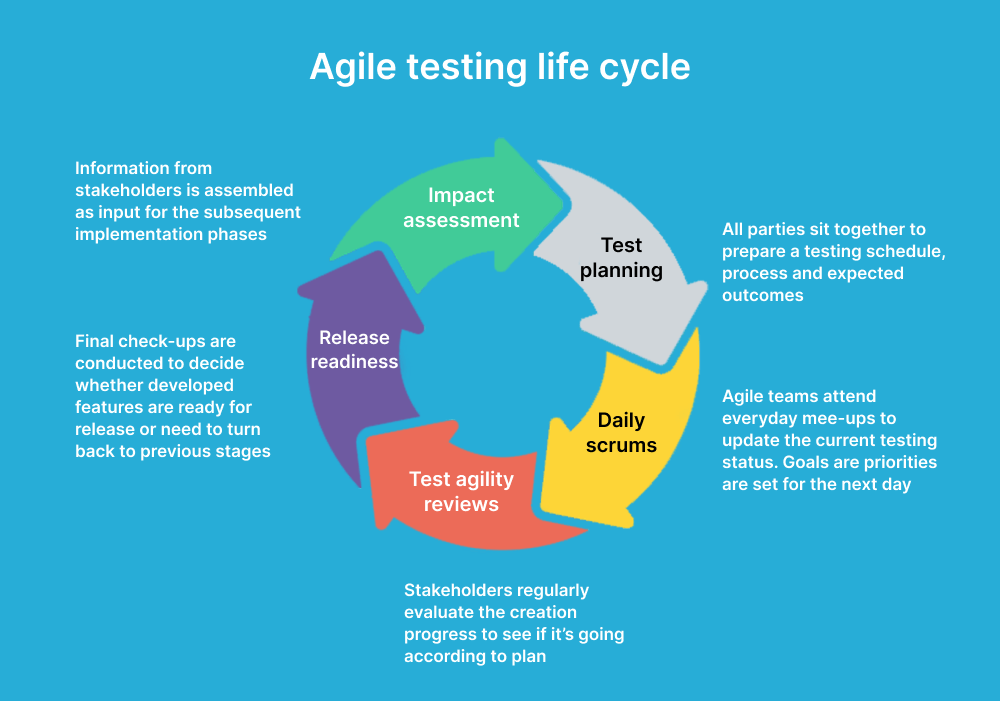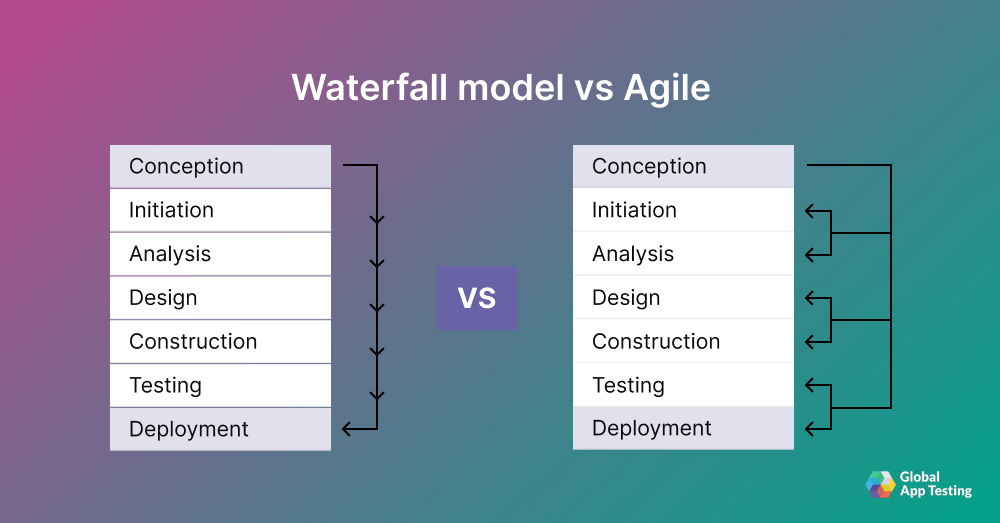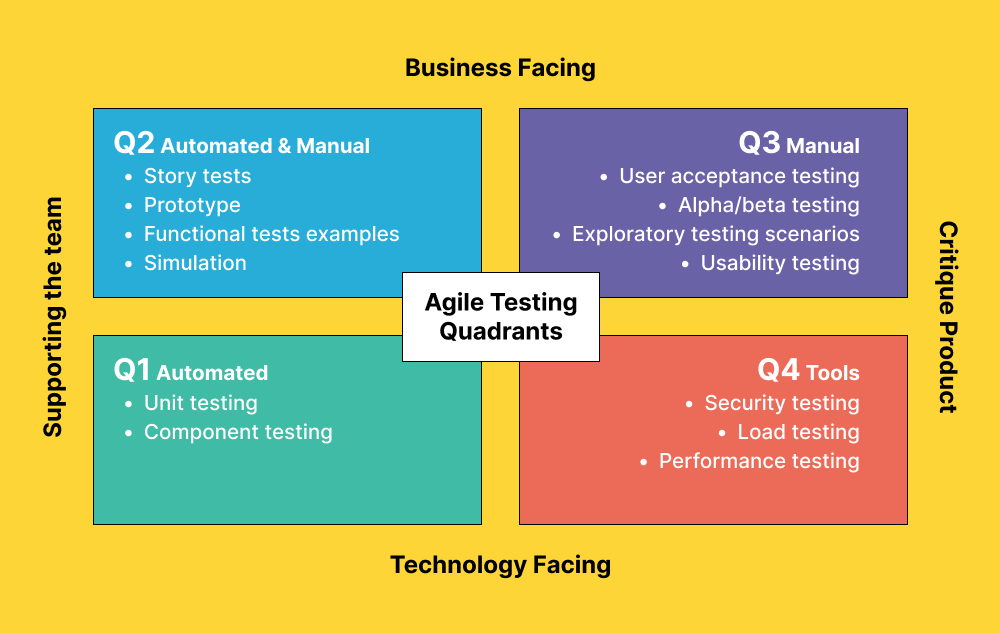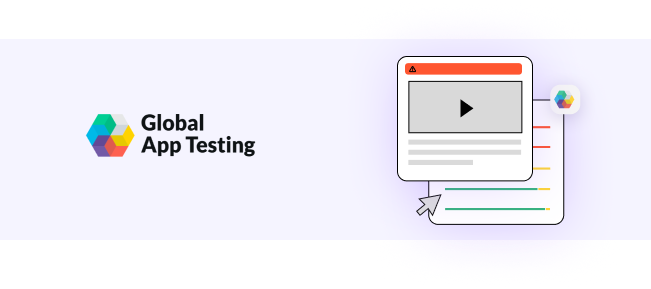5 Agile Testing Tools to Improve your Development in 2025
Did you know that the agile approach has led 60% of companies to grow their revenue and profits? When effectively implemented, agile practices benefit individuals and the entire organization. The main benefit of this is its ability to adjust to changes. Suppose you're weary of addressing last-minute bugs and glitches in your software.
In that case, agile software development necessitates reliable testing tools to identify and resolve issues before they escalate. So, it is no wonder that 86% of software developers worldwide embrace agile approach as their primary business practice! From automated testing to continuous integration, these 5 best agile tools simplify your process, ensuring timely software delivery without major issues.
We can help you drive localization as a key initiative aligned to your business goals
What is the agile model?
The "Agile Model" is based on four core principles: adaptive planning, early delivery, continuous improvement, and ease of change. It employs incremental and iterative process models, breaking the product into smaller pieces for rapid iterations, each lasting approximately two weeks. A cross-functional team collaborates concurrently in various domains, including:
- Planning
- Requirements Analysis
- Design
- Coding
- Unit Testing
- Approval Testing

Project-specific approach
The agile model emphasizes that each project needs a unique approach, with methods tailored to match specific requirements. Tasks are organized into short time frames to address particular features for a release.
The iterative approach involves releasing a working software build after the completion of each iteration, incorporating all client-demanded features. Although the agile concept has been around for some time, it has gained popularity among software testers due to its remarkable flexibility and adaptability.
Agile Vs Waterfall
Agile testing diverges significantly from the Waterfall method. It begins at the project's outset with continuous integration, linking project development and testing.

Unlike the sequential approach of Waterfall, agile testing is a continuous process, delivering more reliable predictions on workable products within a short timeframe.
Agile model test plan
In the agile model, the test plan is formulated and updated for every release. It contains different testing types, including data requirements, infrastructure, test environments, and test results occurring in that iteration.

What are agile testing tools?
Agile testing tools are specialized software solutions crafted to assist agile teams in automating tests during the software development process. Their purpose is to streamline testing, detect bugs in the early stages, and promptly identify issues. Using agile testing tools enhances the efficiency and precision of agile projects, simultaneously diminishing the likelihood of errors and glitches.
These tools manifest in various forms, such as automated testing frameworks, continuous integration tools, and issue-tracking software. Whether you're a developer or a QA tester, incorporating agile software testing tools is imperative for delivering high-quality software within deadlines and mitigating last-minute challenges.
5 Best agile testing tools to consider
1. Global App Testing (GAT) – "best-in-class functional and UX testing"

Why is Global AppTesting included in this list?
Global App Testing (GAT) provides comprehensive testing services for app development. Combining crowd testing and intelligent automation, it ensures the delivery of high-quality software worldwide. Specifically designed to support Agile and DevOps teams, GAT's services aim to keep development teams on schedule by handling system and performance testing, allowing development teams to focus on addressing identified issues.
Who is the software targeted at?
Global App Testing is a choice for companies developing software, web apps, mobile apps, websites, and SaaS products.
GAT's reputation is exemplified by its clients, including tech giants such as Google, Microsoft, WhatsApp, and Meta, along with major corporations like P&G and General Electric.
Key features:
- Functional testing: Allows you to check whether a program or app can perform designated tasks, covering security, APIs, databases, UI, and client-to-server communication.
- Exploratory testing: Involves wandering through the program or app to identify bugs or issues. Adopts ad hoc testing scaled to specific needs, assigning experienced testers to provide results within 36 hours, including videos, full logs, and screenshots.
- Regression testing: Ensures changes do not negatively impact existing features by repeating previous tests, using a combination of manual and automated testing.
- Test case execution: GAT approaches each test execution project uniquely, providing workflows specific to the app or program.
- Usability testing: Assesses how the digital product performs for end-users in real-world scenarios, examining functionality, content, linguistics, and overall user experience.
- Web app testing: Evaluates the quality and functionality of web apps, identifying pre- and post-release bugs.
- Mobile app testing: Tests are conducted on actual devices rather than emulators for accurate and realistic reports.
- Localization app testing: Checks if apps function correctly in specific geographic locations, considering language, culture, and adherence to local laws and regulations.
- Test analysis: Provides clear and understandable reports highlighting bugs, their severity, and impacts on the end-user experience.
Pros
- Global App Testing offers tools that simplify ongoing QA tasks, allowing for quick test setup across applications using the API or web tools.
- Users appreciate the ease of running exploratory tests, highlighting the platform's user-friendly approach.
- The combination of running exploratory tests and the power of test cases creates a robust testing platform, particularly effective for regression testing.
- The service is praised for its professionalism and responsiveness, making quick changes to adapt to the user's workflow.
- An efficient setup process, from creating an account to running tests and streamlining the testing workflow.
- The platform provides effective feedback loops, optimizing the value derived from the service by promptly addressing high-priority issues.
2. JunoOne – "the #1 tool for software development"

Why is Juno included on this list?
Juno is a free, easy-to-use Jira alternative that is specifically targeted at software testers and QA teams.
What does the software do?
Juno is a project management and software test management tool. Like Jira, Juno is organized around a kanban board; unlike Jira, Juno incorporates test-specific features and documentation tools.
Who is the software targeted at?
Categories from their website include start-ups, agile teams, software companies, and businesses running testing as a service.
What do they list as key features?
- Issue Management: Efficiently manage and maintain the list of issues.
- Test Case Management: Systematically organize testing activities for enhanced efficiency.
- Accelerated Project Completion: Finish projects faster with reduced obstacles.
- Test Scenario Handling: Address various test scenarios seamlessly.
Pros and benefits of Juno
- Juno. One is praised for its user-friendly interface, enhancing the ease of use for teams.
- The platform offers effective collaboration tools, enabling seamless communication and cooperation among team members throughout testing processes.
- The customizable dashboards visually represent key metrics, aiding teams in making informed, data-driven decisions.
- The reporting and dashboard features enhance visibility into testing activities, helping teams identify bottlenecks and gain valuable insights into test case execution.
3. QMETRY – "AI enabled, scalable, mature, enterprise-grade test management platform for agile teams"

Why is QMetry included on this list?
QMetry is an AI-driven enterprise-grade solution tailored for Agile/DevOps Teams, delivering scalability and performance. Specifically designed to address challenges in DevOps environments, this tool seamlessly integrates into CI/CD pipelines, streamlining testing processes and providing real-time insights through centralized reporting.
What does the software do?
QMetry software specializes in continuous testing, providing agile test management and true cloud codeless automation products. The software empowers enterprises to build, manage, and deploy high-quality software rapidly.
Who is the software targeted at?
QMetry is designed for various industries, including government, restaurants, finance, technology, healthcare, education, media, conglomerates, travel, and more.
What do they list as key features?
- QMetry test management for Jira: Agile test management seamlessly integrated within the Jira platform.
- QMetry test management enterprise: Agile test management tailored for enterprise teams, scalable within or outside Jira.
- QMetry test management enterprise plus: AI-enabled and scalable test management solution designed for agile enterprises.
- QMetry automation studio: Cloud-based codeless test automation designed for Agile
DevOps teams.
Pros and benefits of QMetry
- QMetry is excellent at organizing every test case well-structured, providing a streamlined approach for the QA team.
- Users appreciate the ease of use, especially as QMetry integrates as a JIRA plugin.
- The reporting section in QMetry stands out as a crucial functionality, making tracking both passed and failed test cases per test run significantly easier.
4. Katalon – "Seamless test automation, supercharged by AI"

Why is Katalon included on this list?
Katalon is a comprehensive software quality management platform and test automation solution for web and mobile applications.
What does the software do?
Katalon speeds up software development by helping create, run, and analyze automated tests for any app or environment. It easily fits into a team's setup and processes.
Who is the software targeted at?
Katalon is designed for both individual users and small teams (typically with 3-5 members). Additionally, Katalon is suitable for scaling teams, businesses, and enterprises, especially those in Agile and DevOps environments.
What do they list as key features?
- Test planning: Align requirements and test strategy with execution, connecting test cases to Jira requirements.
- Test authoring: Quickly create coding-free test cases with Record-and-Playback and Built-in Keywords features. Manage and share test artifacts for easy reuse across projects.
- Test organization: Categorize test cases into test suites, collections, environments, objects, and profiles in one place. Use custom fields and tags for improved management.
- Test execution: Run tests locally, remotely, or on-cloud environments based on resource availability.
- Test analysis: Comprehensive quality view with smart reporting (coverage, release, flakiness, pass/fail reports).
Pros and benefits of Katalon
- Katalon Studio is user-friendly, catering to novice and experienced testers.
- As an all-in-one automation testing tool, it covers various testing types. This integrated approach allows testers to use a single tool for diverse testing needs.
- It offers free access to its basic features, giving users a cost-effective solution for their testing requirements.
- The tool supports data-driven testing, empowering testers to create test cases that run multiple times with different data sets.
- It integrates with various tools and platforms, including JIRA and Jenkins.
5. Testsigma – "Automate tests 5X faster and ship with confidence"

Why is Testsigma included on this list?
Testsigma is a cloud-based test management tool with versatile integration capabilities beyond JIRA, including plugins such as Sauce Lab, BrowserStack, Slack, and more.
What does the software do?
Testsigma is a comprehensive test automation ecosystem designed for continuous testing in Agile and DevOps, covering planning, design, development, execution, analysis, and reporting.
Who is the software targeted at?
Testsigma is designed for Quality Assurance (QA) professionals, Subject Matter Experts (SMEs), and Developers. It caters to individuals involved in software testing, including those responsible for quality assurance processes, domain experts, and developers participating in the testing and automation of software applications.
What do they list as key features?
- Role-specific dashboards for team motivation and progress tracking.
- Plan for Web applications, Android web, Android native, iOS Web, iOS Native Applications, and Web Services.
- User management with roles and project assignments.
- Creation of custom artifacts like Requirement categories, Test case types, and Test case priorities.
- Develop automated tests using simple English, eliminating the need for programming knowledge.
- Intuitive user interface for writing automated tests.
- Easy use of parameterized test data, environment test data, and global test data.
Pros and benefits of Katalon
- Testsigma is designed to be easily navigable by new users, requiring minimal training to get started.
- The unique test step grouping feature is a valuable tool, significantly reducing the time needed to develop new scripts.
Wrapping it up
Agile testing tools offer the benefit of adaptability and real-time collaboration, allowing teams to respond quickly to changing requirements and enhance communication for efficient, iterative testing within the dynamic, agile development framework. These tools streamline test automation, continuous integration, and feedback loops, fostering seamless integration of testing processes into the agile workflow, ultimately ensuring faster and more reliable software delivery.
Ask us about Global App Testing
At Global App Testing (GAT), we are committed to maintaining rigorous standards in all aspects of testing, including thorough test execution and top-notch security measures. We offer flexibility in testing methods, with the option for crowdtesting, automation integration, or a combination of both. Choosing GAT as your ally in achieving reliable and effective testing provides you with the following benefits:
- Fast, actionable results that prevent delays in tight development schedules.
- Quick turnaround times for exploratory test results, test case execution results, and detailed bug reports without increasing headcount.
- With a network of over 55,000 testers spanning 190+ countries, you get almost complete international coverage, allowing you to integrate global testing into your market strategy.
- Seamless alignment with your workflow with Jira, GitHub, Azure DevOps, Pivotal Tracker, Trello, Sprintly, DoneDone, Asana, and Basecamp integrations.
- Adherence to the highest worldwide security standards, addressing concerns related to product security when working with a third party.
Use a blend of crowdtesting and intelligent automation to help you release high quality software anywhere in the world.
FAQ
How can agile testing tools enhance transparency in the development process?
Agile testing tools provide visibility into testing progress, results, and issues. This transparency fosters team collaboration and understanding of software quality and testing status.
What role do agile testing tools play in ensuring product quality in agile development?
Agile testing tools contribute to product quality by promoting continuous testing, early bug detection, and efficient collaboration. They help maintain a high-quality standard throughout the development process, leading to the delivery of a reliable and well-tested product.
What are the benefits of using agile testing tools in terms of software delivery speed?
Agile testing tools contribute to faster software delivery by enabling continuous testing, automated test execution, and early bug detection. This results in quicker feedback loops, allowing teams to address issues promptly and deliver software increments more rapidly.
Keep learning
Best Practices for Agile Testing
Testing in Agile: What Are The Benefits?
The 9 most common software testing mistakes you should avoid

